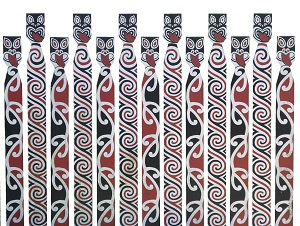
‘Te Ahu o te Reo’ will be led by Te Wāhanga from the New Zealand Council for Educational Research (NZCER), in a contract with Te Taura Whiri i te Reo Māori.
The project will undertake research to measure the health of te reo Māori in homes and communities.
“The project will benefit Māori language communities by ensuring the best use of resources when supporting revitalisation,” acting CE of Te Taura Whiri i te Reo Māori, Poia Rewi says.
NZCER is excited to have the opportunity to reconnect with this earlier piece of influential work, and the project will even involve communities that took part in the original study.
“The innovation in this research work, when compared to the 1970s study, is that we are taking a kaupapa Māori approach,” Te Wāhanga manager and project leader Dr Jessica Hutchings says.
“We want to get a sense of how homes and communities are working towards re-establishing te reo Māori as a living language and normal means of communication in daily life.”
The 20-month-long study will focus on households in eight communities that include:
The research will explore:
The beginning of this project marks a significant milestone for He Puna Whakarauora, the research arm of Te Taura Whiri i te Reo Māori whose role it is to set the research agenda for Māori Language Revitalisation.
The much-delayed English draft curriculum is now out for consultation, generating discussion from teachers.
Research from AUT demonstrates arts, culture and recreation have positive impacts on all aspects of…
How effective has the school phone ban been in achieving its aims? Researchers from the…
School camps and excursions deliver hands on learning experiences, helping to consolidate classroom learning.
Innovations in AV technologies present new opportunities to engage with students. We look at how…
A new report from the University of Auckland’s Our Voices Project asks young people what…
This website uses cookies.